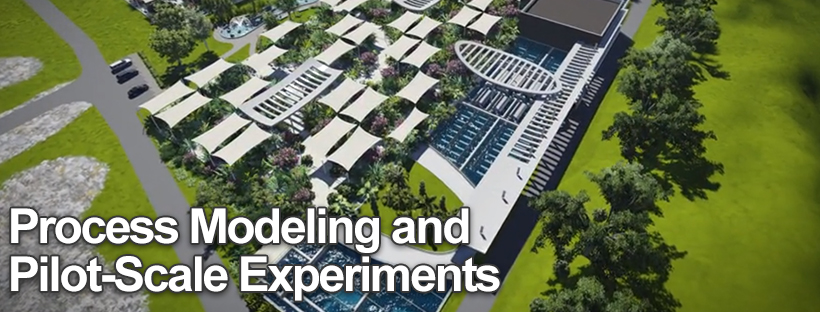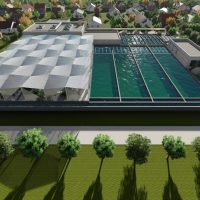 Wastewater aeration is the process of adding air into the wastewater to allow aerobic biodegradation of the pollutant components, therefore it is integral part of biological wastewater treatment systems. Aeration accounts for up to 50% of the energy consumption of a wastewater treatment plant. Because of this, it has been the focus of most process control related studies. In this paper written by Imre Tóth, Associate Director of Process Engineering & Modelling for Organica Water, different aeration control strategies are assessed for a Fixed-Bed Activated Sludge System using process modelling and pilot scale experiments. The main goal of the study is to quantify potential operational savings of different process control philosophies using various treatment plant scenarios for different effluent quality targets, operational skills, treatment plant sizes, and operating temperatures.
Wastewater aeration is the process of adding air into the wastewater to allow aerobic biodegradation of the pollutant components, therefore it is integral part of biological wastewater treatment systems. Aeration accounts for up to 50% of the energy consumption of a wastewater treatment plant. Because of this, it has been the focus of most process control related studies. In this paper written by Imre Tóth, Associate Director of Process Engineering & Modelling for Organica Water, different aeration control strategies are assessed for a Fixed-Bed Activated Sludge System using process modelling and pilot scale experiments. The main goal of the study is to quantify potential operational savings of different process control philosophies using various treatment plant scenarios for different effluent quality targets, operational skills, treatment plant sizes, and operating temperatures.
The purpose of the paper is to provide sufficient information for the development of a standard evaluation tool that is simple enough and allows the user to determine adequate process control levels based on multi-criteria decision analysis. Imre will be discussing his written piece at the Water Environment Federations Annual Technical Exhibition and Conference. The WEFTEC Conference, located in New Orleans, Louisiana from October 1-3, 2018 is the largest conference of its kind in North America and offers both young and experienced water quality professionals from around the world, the best water education and training presently available.

